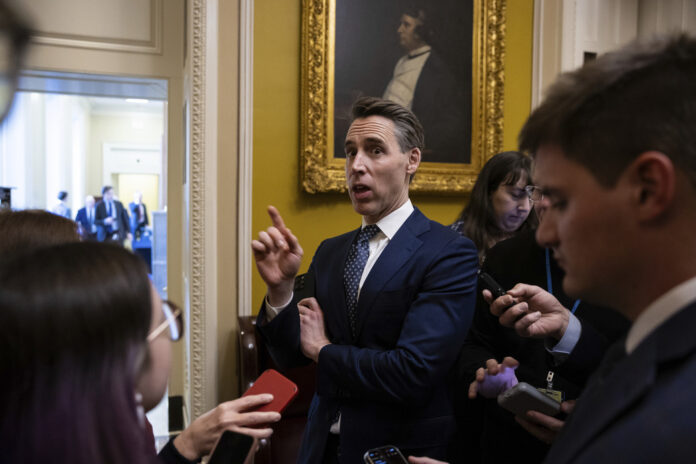To reduce the burden on American taxpayers, Senators Josh Hawley and Peter Welch have joined forces on bipartisan legislation that would prohibit pharmaceutical firms from setting prices in the United States that are higher than the global average.
Their measure differs from the Trump administration’s proposed tax cuts, extensions, and improvements in border security, but it highlights the bipartisan and popular effort to rein in pharmaceutical giants. Medicaid expenditure would be reduced if the safety net program’s prescription payments were to match the cheaper rates paid abroad, according to a plan put out by the White House.
Hawley, a Republican from Missouri, made a statement that was initially published with HEADLINESFOREVER in which he connected the bipartisan bill to the attempts made by President Trump during his first term to establish a comparison between the prescription prices in the US and other high-income nations.
Restoring cheap medicines and empowering Americans to get the care they need would be the goals of this bipartisan measure, according to Hawley.
It is still unclear what position House Republicans will take on pharmaceutical prices as part of their unfinished policy agenda. In contrast to the White House’s “most favored nation” proposal, Speaker Mike Johnson cast doubt on the concept in an interview last week.
In the interim, keep an eye on Hawley’s vote on the Republicans’ party-line plan; during the Senate discussion, members will have the opportunity to submit limitless amendments to practically any idea. “This is where to start” if Republicans are serious about cutting health care spending during reconciliation, he declared.
The bill would do more than just make it illegal for drug firms to charge more than the going rate in the US; it would also penalize them if they did.
Welch, a Democrat from Vermont, expressed her disapproval that “Big Pharma’s price gouging has made that a reality for many Americans,” meaning that people in the US spend four or five times as much as those in other nations for the same important treatments.
Although the majority of Americans do not pay the list price when they fill their prescriptions, the law would target this pricing. This is because PBMs and health insurers have considerable bargaining power when it comes to pricing.
Pharmaceutical companies are expected to strongly disagree with the idea. They have previously claimed that “government price controls” like international reference pricing would make it more difficult for patients to get the treatments they need, such as longer medication wait times.
An international reference pricing policy that takes into account prices in various other high-income countries, such as the UK, Canada, and France, would lead to a 5% decrease in average drug prices in 2031, according to last year’s findings by the Congressional Budget Office.
